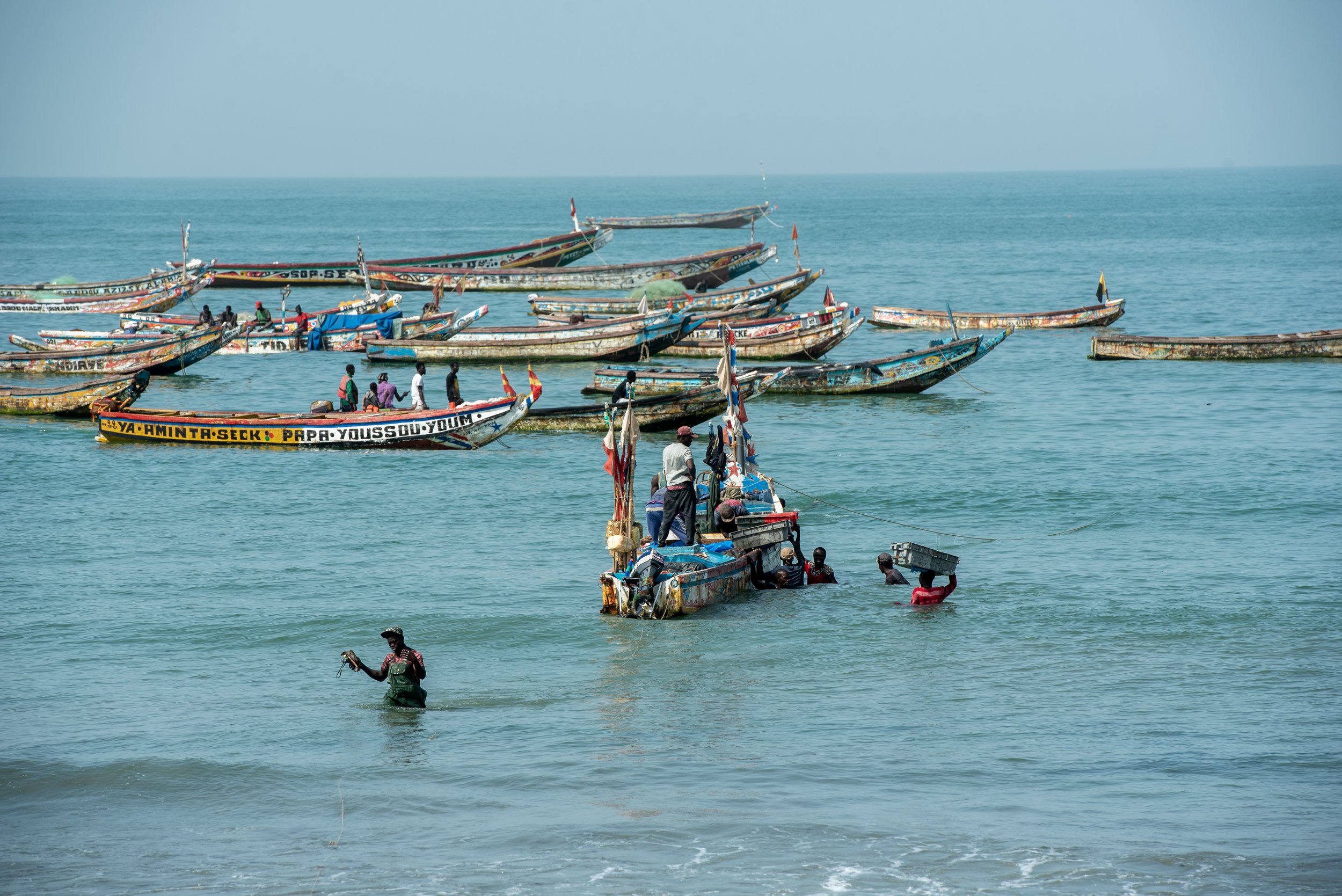The European Parliament's Fisheries Committee (PECH) reaffirmed on Wednesday 11 May the importance of prioritising fish for human consumption rather than using it as "raw material for the food industry".
It asked the EU to support Mauritania under the Sustainable Fisheries Partnership Agreement (SFPA) to "ending overfishing of small pelagics and to ending the situation caused by the negative impacts of fishmeal and fish oil industry".
MEPs also called on the EU, Mauritania and neighbouring countries to work together to establish a Regional Fisheries Management Organisation (RFMO) for the management of shared stocks in West Africa.
Small pelagics management plan, a sine qua non
The EU-Mauritania SFPA is the most expensive agreement for the EU, as it pays more than €60 million per year for its fleets to access Mauritanian waters. The new SFPA allows trawlers targeting small pelagics to fish closer to the coast, from 20 miles to 15 miles, but only if Mauritania puts in place a management plan for small pelagics. These stocks are shared with neighbouring countries and some of the species are overfished, and the exponential growth of the fishmeal and fish oil is aggravating the phenomenon.
For several years, civil society and local and West African artisanal fishing organisations have been calling for concerted regional management. In a letter to Parliament last week, several stakeholders demanded that factories "only use fish waste and not fish fit for human consumption" and that "capacities for processing and preserving small pelagics for human consumption" be developed, including with sectoral support. Stakeholders also complained that there was little impact from the agreement.
MEPs echoed this demand in the resolution by calling on the EU-Mauritania Joint Committee to promote, in the framework of the sectoral support of the SFPA, "infrastructure projects that will lead to increased local consumption of fish products" as well as financing “projects that directly benefit the entire Mauritanian artisanal fisheries value chain".
Unfortunately, PECH members did not react to a sustained request by Mauritanian artisanal fishermen: that octopus fishing be reserved for nationals. Although the agreement maintains the reference tonnage for cephalopods at 0, Mauritanian fishermen would like to see the 2012 presidential declaration enshrined in national law. They are concerned that foreign vessels targeting octopus will go "through the back door" by flying the Mauritanian flag to gain access to this resource. To this end, MEPs nonetheless voted for an unprecedented amendment expressing "its concern about the practice of re-flagging in Mauritanian waters in particular and in the region in general".
PECH wants more transparency and monitoring of sectoral support
Mauritania published its second report of the Fisheries Transparency Initiative (FiTI) the week before the resolution was voted on in Parliament, which did not allow for any changes to the text. The resolution only mentions the first report (criticized for being not very comprehensive). PECH welcomed the progress in transparency in the West African country but asked to "publish the most recent data" and to provide “full information […] on all vessels fishing in its waters in a clear and user-friendly format" for more visibility on the total fishing effort.
The Parliament again reaffirmed the importance of publishing annual reports on the use of sectoral support funds, a long-standing demand of European civil society. PECH would seem to want to have a more active role in the monitoring of these fisheries agreements by suggesting "a presentation to the Parliament of the most relevant or impactful actions or measures" of sectoral support. It should be stressed that most of the time, beyond voting for or against a SFPA and a non-binding resolution with some guidelines for the Commission, the Parliament does not follow up on the implementation of the sectoral support of these agreements.
Banner photo: PECH Chair Pierre Karleskind at a hearing on aquaculture, illustration photo by Vincent van Doornick/European Parliament.







The Sustainable Fisheries Partnership Agreement (SFPA) between the EU and Mauritania is an opportunity to implement the “new generation” of agreements announced by the Commission, which should focus on the equitable sharing of benefits, local development, and the well-being of coastal communities that depend on fishing.